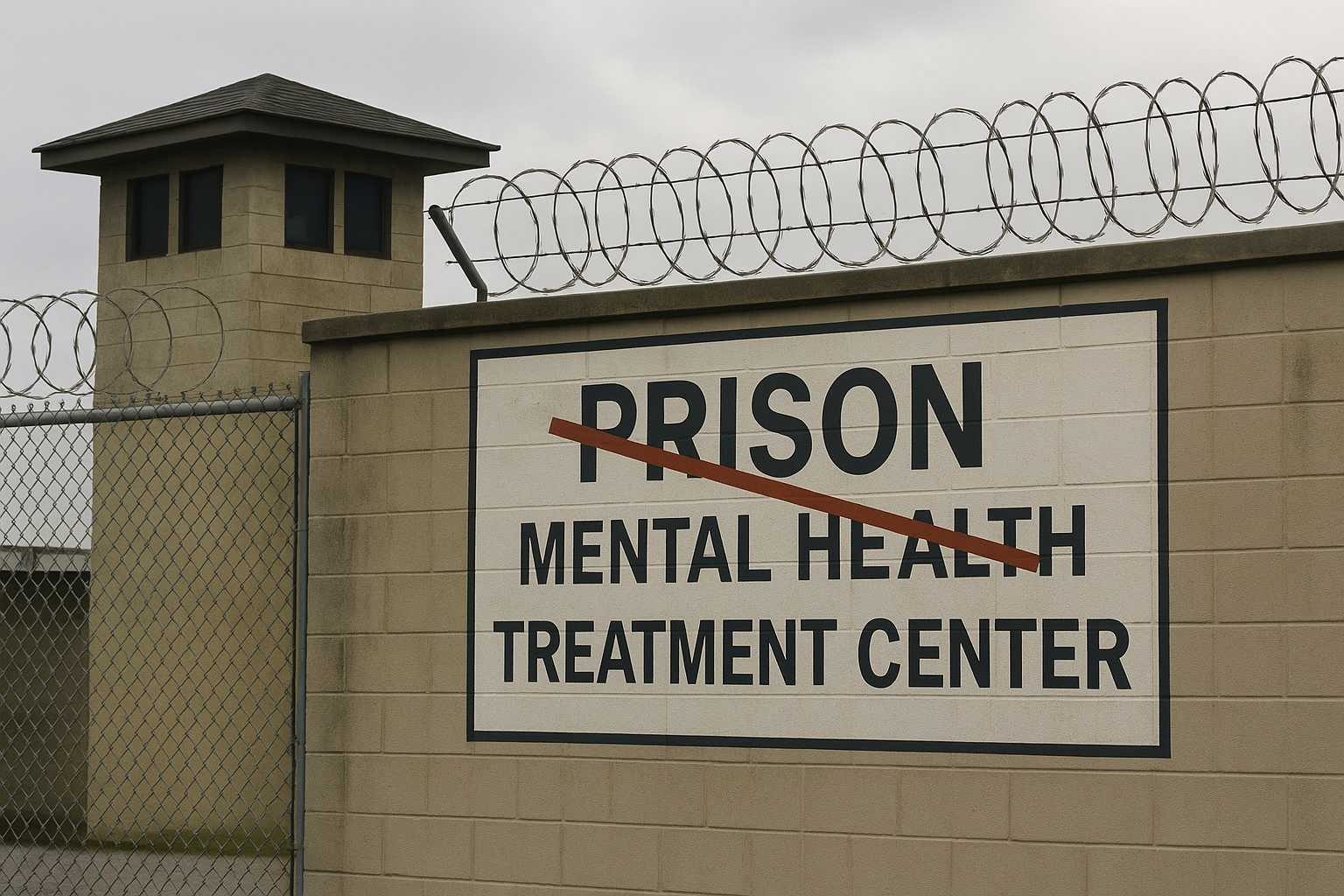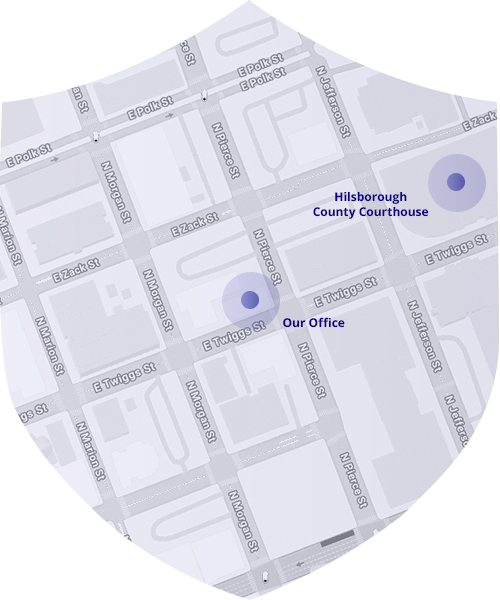- Free Consultation 24/7: (813) 727-7159 Tap Here To Call Us
Jimmy Ryce Act Lawyer: Fighting Indefinite Commitment in Florida

By The Brancato Law Firm, P.A. | June 2025
Why the Jimmy Ryce Act Is Florida’s “Hidden Sentence”
Finishing your prison sentence should mean you get your life back. But under Florida’s Jimmy Ryce Act, the State can petition to keep you locked away long after your release date. It’s called “civil commitment,” but for many, it feels like a second sentence without a new crime.
At The Brancato Law Firm, P.A., we know that the fight isn’t always over when prison ends. Attorney Rocky Brancato brings over 25 years of experience in complex sex crimes defense — including deep familiarity with the civil commitment process under Florida’s Sexually Violent Predator (SVP) law.
Our mission is clear: to defend both your freedom and your future.
Understanding Florida’s Jimmy Ryce Act
Florida Statutes §394.910–§394.932, known as the Jimmy Ryce Act, allows the State to involuntarily commit a person to a secure treatment facility after they have served their full criminal sentence.
The law applies to those the State claims are “sexually violent predators” — individuals said to pose an ongoing danger because of a mental condition. The Florida Civil Commitment Center (FCCC) in Arcadia is where most respondents are sent. It’s called a “treatment” facility, but the reality often looks and feels like prison.
The Three Elements the State Must Prove
To declare someone a sexually violent predator under the Jimmy Ryce Act, the State must prove each of the following three elements by clear and convincing evidence (as stated in Florida’s official jury instructions):
- The respondent has been convicted of a sexually violent offense.
This includes sexual battery, lewd or lascivious acts, certain kidnapping or false imprisonment offenses involving minors, and even some out-of-state or federal crimes if they are comparable. - The respondent suffers from a mental abnormality or personality disorder.
A mental abnormality means a condition that affects emotional or volitional control and predisposes the person to commit sexually violent offenses. - That mental abnormality or personality disorder makes the person likely to engage in acts of sexual violence if not confined in a secure facility for long-term control, care, and treatment.
“Likely to engage” means the person’s propensity to commit such acts is so great it poses a menace to the health and safety of others.
If the State fails to prove any one of these elements, commitment is not permitted. This definition is critical — it limits confinement to only the most extreme cases, and a skilled attorney ensures that standard is applied correctly.
How the Jimmy Ryce Act Process Begins
The process usually starts months before an inmate’s release date.
- Screening by the Department of Corrections (DOC) – Every inmate with a past sex-related conviction is reviewed by DOC and the Department of Children and Families (DCF).
- Multidisciplinary Team (MDT) Evaluation – A DCF-appointed team evaluates the inmate’s records and psychological history. If the team finds a potential “mental abnormality,” it recommends civil commitment.
- State Attorney Petition – Based on that recommendation, the State Attorney may file a petition asking a circuit court to declare the person a sexually violent predator.
Once this petition is filed, a new case begins — separate from the original criminal case — and it follows the Florida Rules of Civil Procedure for Involuntary Commitment of Sexually Violent Predators (Rules 4.010–4.470).
Your Rights Under the Jimmy Ryce Rules
While the process is labeled “civil,” it borrows many safeguards from criminal law. Knowing your rights at each stage can change the outcome.
Probable Cause Hearing (Rule 4.220)
A judge first decides whether probable cause exists. If so, you are not released — you’re transferred to the Florida Civil Commitment Center (FCCC) in Arcadia to await trial. You have the right to a prompt adversarial probable cause hearing and access to all expert reports.
Right to Counsel (Rule 4.200)
The court must appoint an attorney immediately after probable cause is found. You may represent yourself only after a formal Faretta inquiry, and the court can appoint standby counsel to assist you.
The 30-Day Trial Rule (Rule 4.240)
Once you are served with the petition, the law requires that your trial begin within 30 days, unless you waive that right in writing or in open court. If you waive it, trial must be scheduled no earlier than 90 days later. This rule prevents indefinite pretrial detention.
Discovery Rights (Rule 4.280)
You have the right to obtain evidence, including psychological evaluations, MDT reports, and witness lists. Both sides must share expert reports and continue to supplement discovery as new information becomes available.
Trial Rights (Rules 4.430–4.431)
You are entitled to a jury trial of six members, and the verdict must be unanimous to commit you. The State has the burden to prove its case by clear and convincing evidence — a high standard requiring precise and persuasive proof that leaves no serious doubt.
Inside the Jimmy Ryce Trial
During trial, jurors hear evidence, expert testimony, and argument from both sides. The judge instructs them that:
- They must rely only on evidence presented in court (Instruction 2.01).
- The burden of proof is on the State (Instruction 2.03).
- They must weigh the credibility of witnesses carefully (Instruction 2.04).
- Expert testimony can be accepted, rejected, or given whatever weight jurors find appropriate (Instruction 2.05).
- Sympathy, anger, or bias cannot influence their verdict (Instruction 2.06).
- The verdict must be unanimous — and if three or more jurors find the person is not a sexually violent predator, the respondent must be released (Instruction 2.08).
These detailed instructions are not just formalities — they are the backbone of a fair trial. A strong defense lawyer ensures the jury understands every one of them.
After Commitment: The Right to Review and Release
Even if the court orders commitment, the fight doesn’t end there. Under Rule 4.470, the respondent must be evaluated at least once a year to determine whether continued confinement is necessary.
If an evaluation suggests improvement, the court holds a hearing to decide if the person can be safely released. The State once again carries the burden to prove, by clear and convincing evidence, that confinement should continue.
An experienced Jimmy Ryce attorney can petition for release, present independent expert evaluations, and hold the State accountable to its burden.
The Harsh Reality of “Civil” Confinement
Despite the law’s stated purpose of treatment, life at the Florida Civil Commitment Center is more punitive than therapeutic:
- Residents are monitored 24 hours a day.
- Movement is restricted and heavily supervised.
- Searches are routine and invasive.
- Access to therapy is limited due to chronic understaffing.
For many, “civil commitment” becomes a life sentence in disguise. Without experienced counsel, individuals can remain confined indefinitely — not because of a new offense, but because they cannot meet the heavy evidentiary burden for release.
How The Brancato Law Firm, P.A. Builds a Defense
Our defense begins long before the civil petition is filed. We work on both fronts — preventing commitment and fighting it if it occurs.
1. Early Intervention
We identify and address potential Jimmy Ryce exposure during plea negotiations or post-conviction work, often using expert evaluations to show no qualifying mental abnormality exists.
2. Challenging the State’s Case
We contest every stage of the process — from MDT evaluations to psychological opinions — and cross-examine the State’s experts using the very criteria outlined in Rules 4.280 and 4.440.
3. Civil Trial Defense
We ensure jurors understand that the law requires three distinct findings, not assumptions of danger. Our focus: exposing uncertainty, questioning methodology, and reinforcing that “likely to engage” means a menace-level risk, not mere possibility.
4. Post-Commitment Advocacy
If commitment occurs, we continue representation through annual reviews, petitions for release, and federal habeas challenges when necessary.
Common Misunderstandings
- “This isn’t criminal, so it’s not serious.”
False. The outcome can mean lifetime confinement. - “I’ll automatically get treatment and then go home.”
In reality, treatment programs are limited, and release is rare without legal pressure. - “You can’t win a Ryce case.”
Not true. Many cases end in dismissal, acquittal, or release when handled strategically by experienced counsel.
Protecting Your Freedom After Prison
If you or someone you love is approaching release from a Florida prison after a sex-related conviction, do not wait for a Jimmy Ryce notice. The moment your case is flagged for review, the State begins building its case for indefinite commitment.
You need a defense team that understands both the law and the psychology behind these proceedings.
The Brancato Law Firm, P.A. defends individuals throughout Tampa, Hillsborough, Pinellas, and Pasco Counties, offering expert representation in sex crimes, post-conviction litigation, and Jimmy Ryce Act defense.
Call (813) 727-7159 for a confidential consultation.
Freedom doesn’t end when your sentence does — and neither should your defense.
See our Tampa Sex Crimes Lawyer page for more about our sex crimes specialty.

















